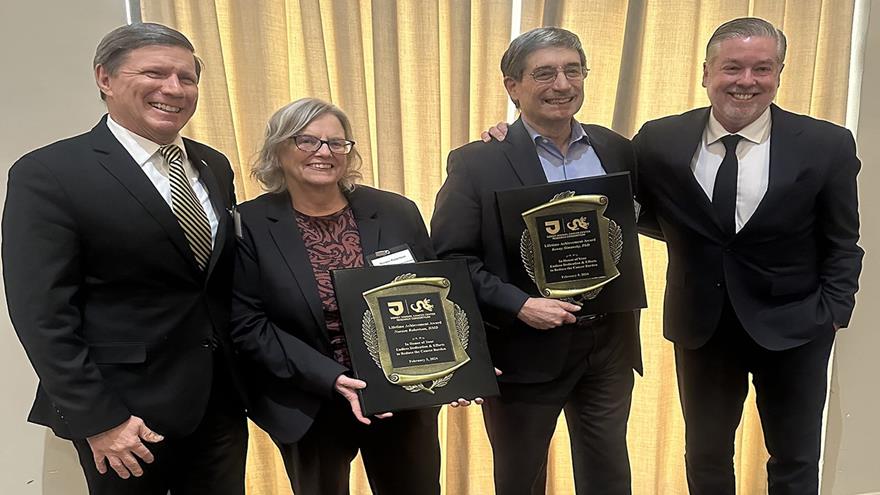Drexel, NJIT and Rowan to Concert Water Research Efforts


Researchers from Drexel University, the New Jersey Institute of Technology and Rowan University are aligning themselves with government, private and advocacy groups in hopes of solving challenges that affect the region’s water resources. The research alliance, supported by scholars from all three academic institutions, will function as a data resource, a policy think tank and a lab for creating new technology.
“This is a unique opportunity to develop a centralized hub of knowledge as it pertains to water issues in a heavily urbanized region,” said Charles Haas, PhD, LD Betz professor and head of the Civil, Architectural and Environmental Engineering Department in Drexel’s College of Engineering.
Haas, Michael Boufadel, PhD, director of NJIT’s Center for Natural Resources Development and Protection; and Anthony Lowman, PhD, dean of engineering at Rowan, recently formalized the partnership, which will draw on the strengths of water experts at all three universities.
“Researchers from these three institutions have made significant headway in addressing ongoing problems and this collaboration will take these efforts to the next level,” Haas said. “Developing relationships between industry and academia are essential steps toward understanding how we can mitigate water resource and management problems in a society that will always face increased industrialization and commercialization.”
The partnership came together as members from each institution recognized the urgent need to monitor and protect water supplies in the Northeast amidst industrial and population growth and urban sprawl.
Some of the early goals of the alliance include organizing presentations about water resource protection, offering courses about water use and creating an online portal for communicating and sharing information between institutions.
But the founders also expect their group to become a resource for public policy and technological development.
“Our objective is to offer turnkey solutions to industry, to become a one-stop shop for solving problems,” Boufadel said. “Contact one of us and we will be able to tell you who the experts are among our faculty, from flooding specialists to public health researchers. We will connect you with the right advisers on the spot.”
The universities' research and technology will be “exportable, with relatively minor adjustments” to other regions of the U.S. and the world, according to Boufadel, a specialist in water contamination, who provided technical analyses and remedial strategies in response to the two largest oil spills in U.S. history, the Deepwater Horizon and Exxon Valdez spills.
“We will tap into urban issues and build a strong research partnership,” Lowman said. “This is something that industry wants and needs.”
Boufadel added that researchers’ work with industrial partners will be facilitated by the New Jersey Innovation Institute (NJII), an NJIT corporation created earlier this year to spur innovation and growth in a range of economic sectors by leveraging the resources of industry, government and higher education.
Drexel News is produced by
University Marketing and Communications.